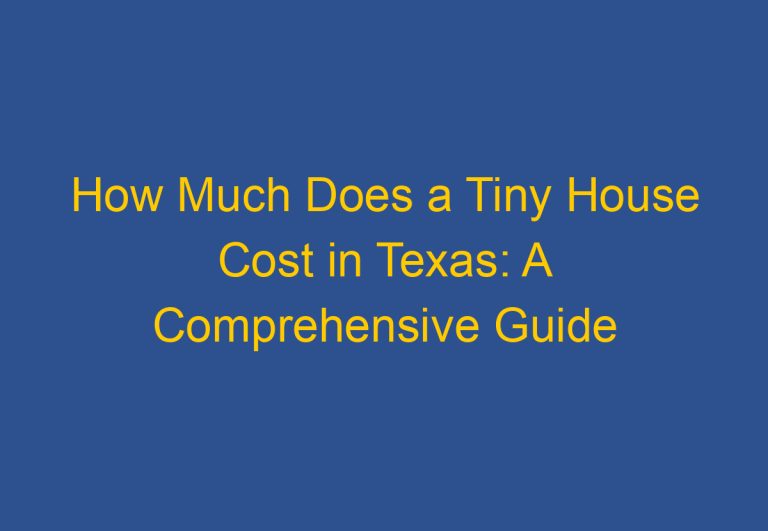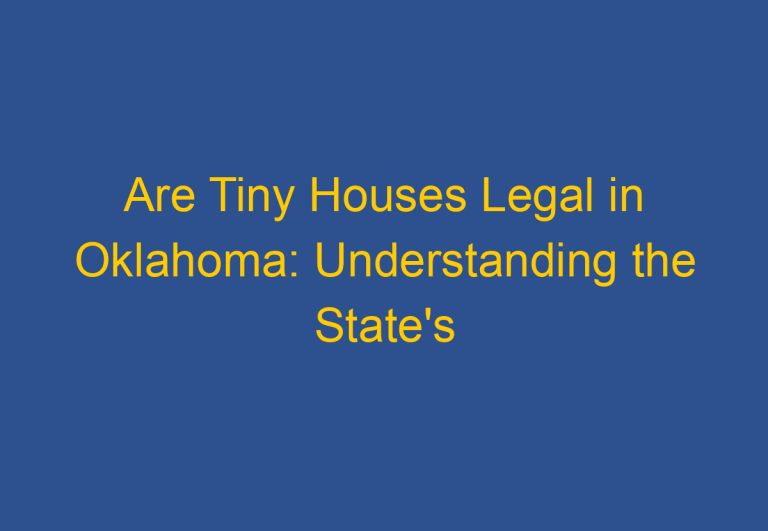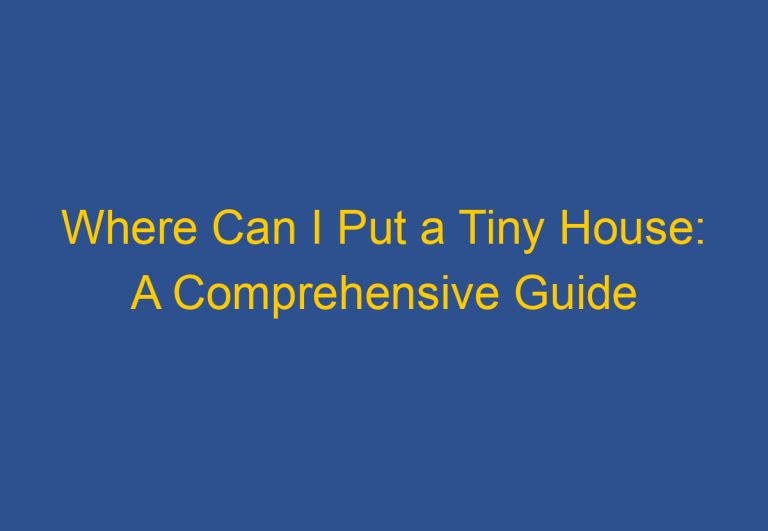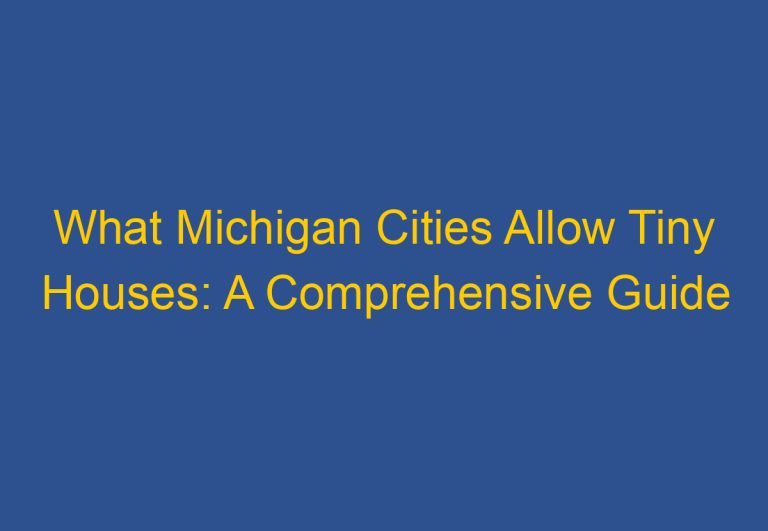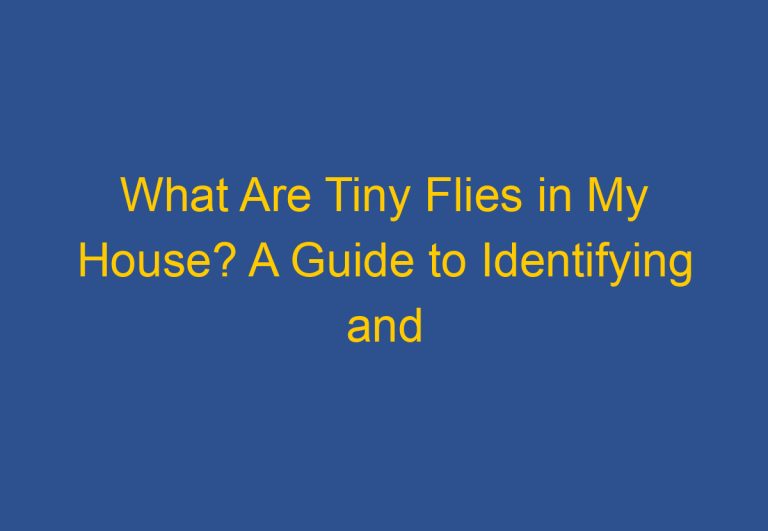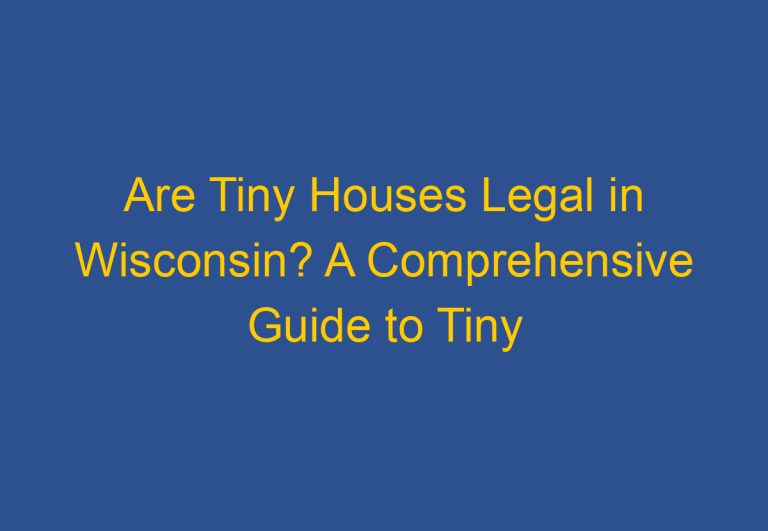Does Virginia Allow Tiny Houses?
The tiny house movement has been gaining momentum across the United States, and many people are wondering if Virginia is a tiny house-friendly state. The short answer is yes, Virginia does allow tiny houses in most counties and cities.
However, as with many aspects of tiny house living, the devil is in the details. Let’s dive into the specifics of tiny house regulations in Virginia and what you need to know if you’re considering joining the tiny house community in the Old Dominion State.
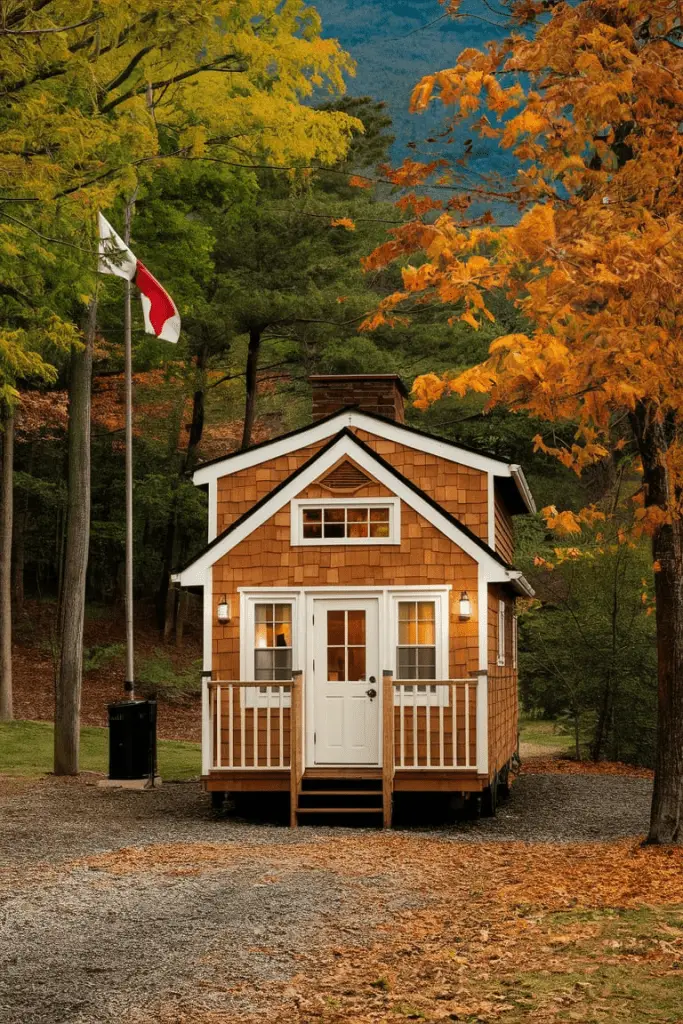
Understanding Tiny Houses in Virginia
Before we delve into the legalities, it’s important to understand what constitutes a tiny house. Typically, a tiny house is a dwelling unit with a living space of 400 square feet or less. These can be built on foundations or on wheels, with the latter often referred to as Tiny Houses on Wheels (THOWs).
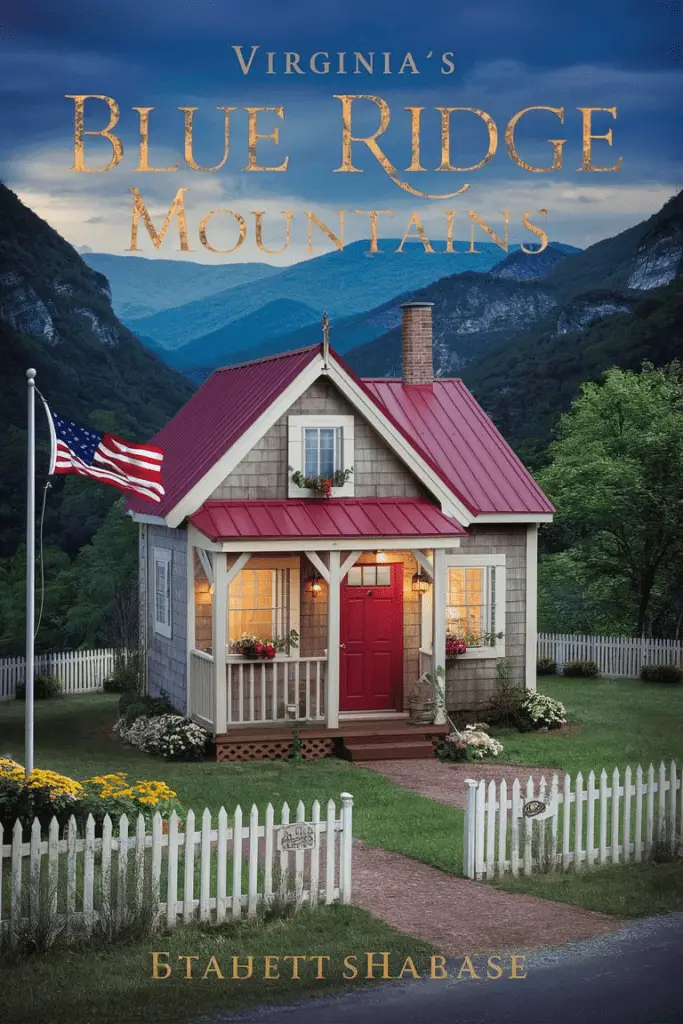
In Virginia, the acceptance of tiny houses varies by locality. While constructing a tiny home is legal in most cities and counties, there is no state-wide law governing their legality. This means that regulations can differ significantly from one area to another, making it crucial for prospective tiny homeowners to research local zoning laws and building codes.
Counties That Welcome Tiny Houses
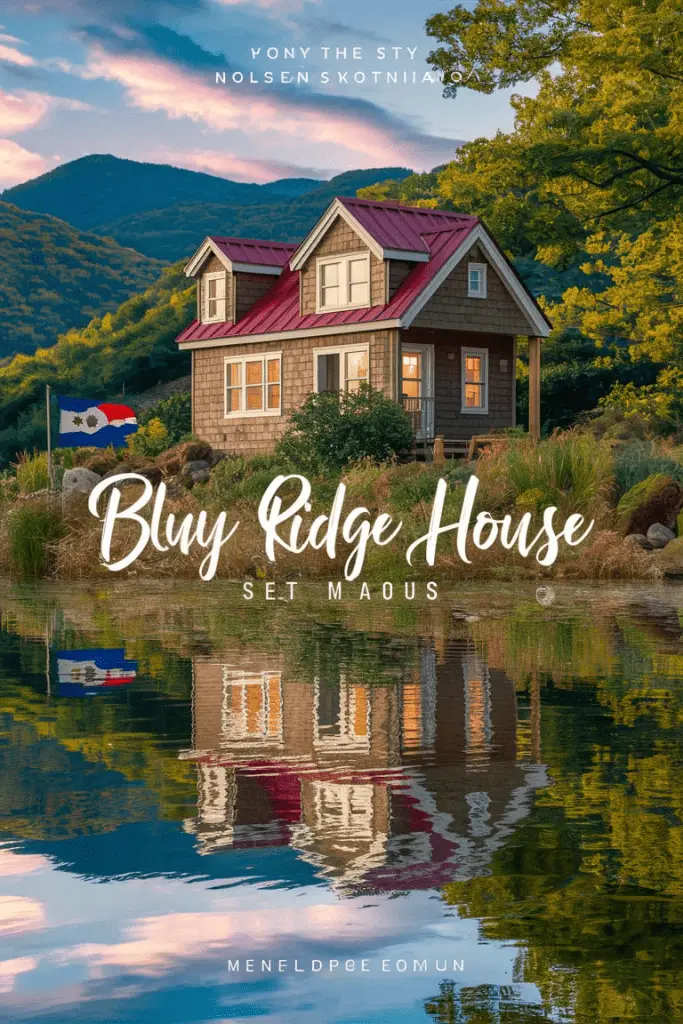
Several counties in Virginia have embraced the tiny house movement and have adopted zoning ordinances and building codes to accommodate this alternative housing option. For example:
- Bedford County: Tiny homes are legal in Bedford County, which follows the Virginia Uniform Statewide Building Code (USBC) and International Residential Code (IRC).
- Prince William County: This county recognizes tiny houses and has specific guidelines for their construction and placement. Tiny house manufacturers in Prince William County fall under Virginia’s Industrialized Building Code.
- Norfolk, Virginia Beach, Ashland, Arlington, and Richmond: As of 2022, these cities were reported to allow tiny homes.
It’s important to note that this list is not exhaustive, and other counties may also be tiny house-friendly. Always check with local authorities for the most up-to-date information.
Building Codes and Regulations
While tiny houses are permitted in many parts of Virginia, they must still comply with building codes and regulations. The state follows the Virginia Uniform Statewide Building Code (USBC), which is based on the International Residential Code (IRC).
In 2018, the IRC introduced Appendix Q, which provides specific guidelines for tiny houses. However, it’s crucial to understand that not all structures that don’t comply with the 2018 Virginia Residential Code and Appendix Q are considered tiny houses under the USBC.
Key requirements often include:
- Minimum ceiling heights
- Emergency escape and rescue openings
- Stairway and ladder specifications
- Loft area regulations
It’s essential to work with local building officials to ensure your tiny house design meets all necessary requirements.
Zoning Considerations
Zoning laws can be a significant hurdle for tiny house enthusiasts. Many areas in Virginia have minimum square footage requirements for residential dwellings, which can conflict with the very nature of tiny houses.
Some counties and cities have addressed this by:
- Creating specific tiny house districts
- Allowing tiny houses as Accessory Dwelling Units (ADUs)
- Permitting tiny houses in certain residential or mixed-use zones
However, in some areas, zoning laws may still present challenges. It’s not uncommon for tiny homeowners to face restrictions on where they can place their homes, especially if they’re on wheels.
Tiny Houses on Wheels (THOWs)
THOWs present unique challenges in Virginia. While they offer flexibility and mobility, they often fall into a grey area between RVs and permanent structures. Some key points to consider:
- Many localities classify THOWs as RVs, which can limit where they can be parked long-term.
- Some areas may require THOWs to be placed on a permanent foundation to be considered a legal dwelling.
- Hookups for water, sewer, and electricity must typically meet local codes.
It’s crucial to check with local zoning offices about regulations for THOWs in your desired area.
The Process of Building or Placing a Tiny House in Virginia
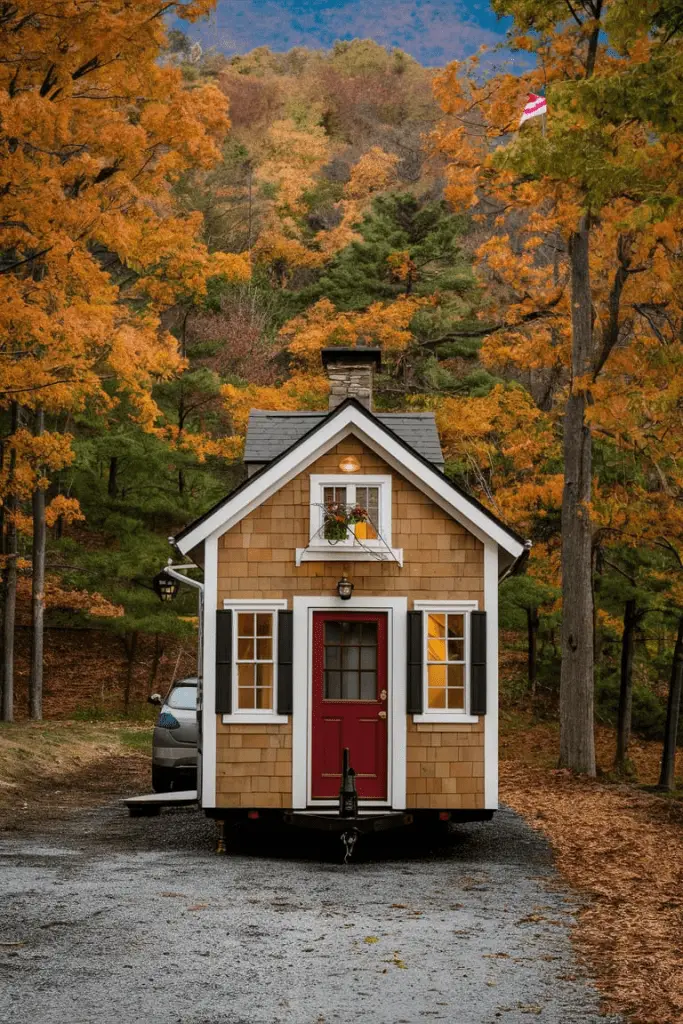
If you’re considering building or placing a tiny house in Virginia, here’s a general outline of the process:
- Research local zoning laws and building codes in your desired area.
- Consult with local planning and zoning officials to understand specific requirements.
- Design your tiny house to meet all applicable codes and regulations.
- Submit your plans for approval and obtain necessary permits.
- If building on-site, schedule inspections throughout the construction process.
- For manufactured tiny homes, ensure they meet Virginia’s Industrialized Building Code.
- Obtain final approval and occupancy permit before moving in.
Challenges and Considerations
While Virginia is generally accommodating to tiny houses, prospective owners should be aware of potential challenges:
- Financing: Traditional mortgages may not be available for tiny houses, especially THOWs.
- Insurance: Finding appropriate insurance coverage can be challenging for non-traditional dwellings.
- Resale Value: The market for tiny houses is still developing, which can affect resale potential.
- Community Acceptance: Some neighborhoods may resist the introduction of tiny houses due to concerns about property values or aesthetics.
The Future of Tiny Houses in Virginia
The tiny house movement continues to grow, and Virginia seems to be moving in a direction that’s increasingly accommodating to this housing option. As more people seek affordable, sustainable living solutions, it’s likely that regulations will continue to evolve to better accommodate tiny houses.
However, it’s important to note that acceptance and regulations can vary significantly between localities. While some areas are embracing tiny houses with open arms, others may still have restrictive zoning laws or building codes that make tiny house living challenging.
Conclusion
So, does Virginia allow tiny houses? The answer is a qualified yes. While there’s no blanket prohibition against tiny houses in Virginia, the specifics depend greatly on local regulations. Many counties and cities in Virginia are tiny house-friendly, but it’s crucial to do thorough research and work closely with local authorities before embarking on your tiny house journey.
If you’re considering a tiny house in Virginia, start by contacting the local planning and zoning office in your desired area. They can provide the most up-to-date and accurate information about tiny house regulations in their jurisdiction.
Remember, the tiny house movement is still evolving, and regulations are likely to continue changing. Stay informed, be patient, and don’t be afraid to advocate for tiny house-friendly policies in your community. With persistence and careful planning, your tiny house dream in Virginia can become a reality.

